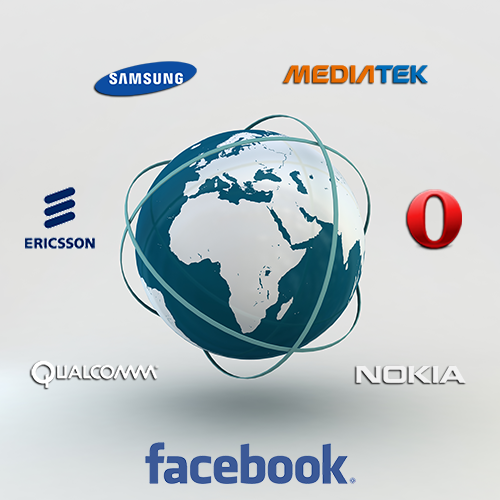Facebook and Several Mobile Companies Leading Charge To Increase Global Internet Availability

Major tech companies like Facebook, Samsung and others are banding together to increase the availability of the Internet around the world. As part of this global initiative, Facebook founder and CEO Mark Zuckerberg announced today the launch of internet.org, an organization dedicated to getting upwards of 5 billion more people online.
And most likely, onto Facebook as well.
In today’s world, only 2.7 billion people have access to the Internet – that’s roughly one-third of the global population. Of that third, roughly 1.15 billion are on Facebook, now the world’s most recognizable social media website. With this new initiative (should it prove successful), the other two-thirds of the world would be introduced to the web and all of its benefits.
“Everything Facebook has done has been about giving all people around the world the power to connect,” Zuckerberg said.
“There are huge barriers in developing countries to connecting and joining the knowledge economy. Internet.org brings together a global partnership that will work to overcome these challenges, including making internet access available to those who cannot currently afford it.”
The details of this program remain relatively undeveloped (at least the details that are public-facing), with much of the laid-out plans painting a picture of newly-developed “data compression tools” and other technologies being created to service these undeveloped areas.
There are clear obstacles that stand in the way of this program’s goals, though. Not only is it about providing Internet access that’s available, affordable, efficient and helpful for local businesses, as this initiative plans to do, but there’s also the unclear motivation of the program as a whole.
Though Ericsson, MediaTek, Nokia, Opera, Qualcomm, and Samsung are all on board to fund and support this endeavor, it’s Facebook who’s leading the charge. And with the company’s persistent (and public) desire to get everyone and their grandmother on Facebook, the question inevitably arises: is the focus of the project on supporting third world countries with Internet access and giving them the tools to develop and succeed, or is the focus on getting more users on Facebook?
There’s nothing nefarious about wanting the latter, or even a combination of the two motivations. And there’s certainly nothing wrong with trying to put modern technology into the hands of people who could benefit from it immensely – but the focus of Zuckerberg’s personal note on Facebook’s newsroom (which released at the same time as this press release regarding Internet.org) was very much about their “rough plan” to get people connected (to the Internet and/or Facebook), which can cause some understandable confusion.
Were this truly about getting more faces on Facebook, though, it would probably be more clear cut. With countries that lack Internet struggling financially the way most are, finding ads to serve to these regions would likely prove very challenging — even if they were to gravitate to Facebook. So, in that vein, it doesn’t make sense for Facebook to go through this level of effort solely to increase their numbers, especially when monetization (any company’s main objective) is a mountainous challenge.
To put it simply, you can’t advertise Gap jeans to an area that doesn’t sell Gap jeans.
But you can, as BestTechie editor-in-chief Jeff Weisbein points out, sell mobile phones. With the introduction of low-cost Internet access naturally comes the opportunity for low-cost mobile devices that connect to the Internet to be sold. This would make sense then, that companies like Samsung, Qualcomm and Nokia are on board – to open a market for consumers who now have Internet to purchase lower-end data-driven devices and use them more frequently.
Should the program prove successful, it’ll be a splendid expansion opportunity for all companies involved — but more importantly, it’ll provide the modern resources capable of helping less fortunate countries climb into a new age of better living, connectivity, and success. Let’s hope internet.org does its thing, and does it well.